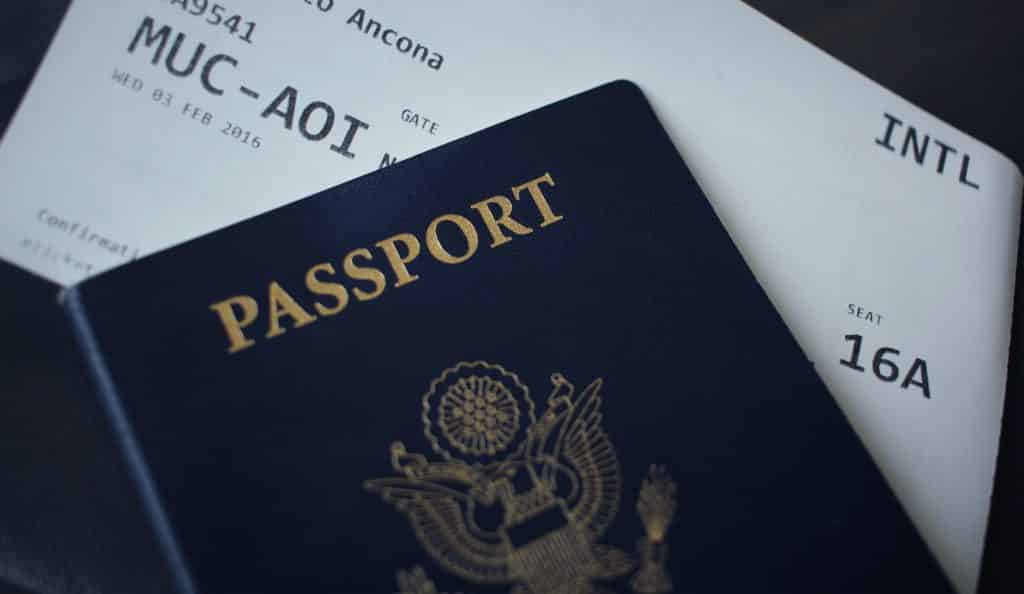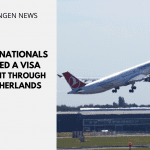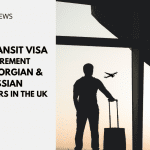Who Needs to Apply for a Schengen Visa to Europe?

Although certain citizens of various countries have the benefit of entering Schengen areas without a visa, most other nationalities and residents must go through the experience and entire procedure of securing permission in order to enter the Schengen area. Some nationals even have to apply for a transit visa to travel through the Schengen area. All of these nationals have to apply, submit documents and fingerprints, and on some occasions, go through an interview process. So who can apply for a Schengen visa and who needs to apply for a Schengen visa?

Who Needs a Schengen Visa to Go to Europe?
| Afghanistan | Algeria | Angola |
| Armenia | Azerbaijan | Bahrain |
| Bangladesh | Belarus | Belize |
| Benin | Bhutan | Bolivia |
| Botswana | Burkina Faso | Burma/Myanmar |
| Burundi | Cambodia | Cameroon |
| Cape Verde | Central African Republic | Chad |
| China | Comoros | Congo |
| Cote D'iviore | Cuba |
| Dem. Rep. Of Congo | Djibouti | Dominican Republic |
| Ecuador | Egypt | Equatorial Guinea |
| Eritrea | Ethiopia | Fiji |
| Gabon | Gambia | Ghana |
| Guinea | Guinea-Bissau | Guyana |
| Haiti | India | Indonesia |
| Iran | Iraq |
| Jamaica | Jordan | Kazakhstan |
| Kenya | Kosova | Kuwait |
| Kyrgyzstan | Laos | Lebanon |
| Lesotho | Liberia | Libya |
| Madagascar | Malawi | Maldives |
| Mali | Mauritania | Mongolia |
| Morocco | Mozambique | Namibia |
| Nepal | Niger | Nigeria |
| North Korea | Northern Mariana's | Oman |
| Pakistan | Papua New Guinea | Philippines |
| Qatar | Russia | Rwanda |
| Sao Tome And Principe | Saudi Arabia | Senegal |
| Sierra Leone | Somalia | South Africa |
| Sri Lanka | Sudan | Suriname |
| Swaziland | Syria | Tajikistan |
| Tanzania | Thailand | Timor-Leste |
| Togo | Tonga | Tunisia |
| Turkey | Turkmenistan | Uganda |
| Uzbekistan |
| Vietnam | Yemen | Zambia |
| Zimbabwe |

Citizens that Need an Airport Transit Schengen Visa
Citizens of the following countries also need an airport transit visa in order to change planes at an airport in a Schengen Area country.
- Afghanistan
- Bangladesh
- Congo (DRC)
- Eritrea
- Ethiopia
- Ghana
- Iran
- Iraq
- Nigeria
- Pakistan
- Somalia
- Sri Lanka
There are some exceptions for the above countries that removes the obligation to obtain an airport transit visa:
- If an individual holds a residency grant from a Schengen part country, a legitimate Schengen Visa for short stays or long stays.
- If an individual holds a residency permit from countries such as Andorra, Canada, Japan, San Marino or the USA.
- If you hold a valid Schengen visa or a valid visa for entering one of the EFTA nations such as Canada, Japan or the United States, regardless of whether you are coming back from those specific nations in the wake of utilising that visa.
- If you are a family member of an EU citizen (for close family only)
- If you hold a diplomatic passport.
Check out the full article on Schengen transit visas to see more about who can apply for a Schengen visa.
Citizens that don't need a Schengen visa to enter Europe
We've talked about who can apply for a Schengen visa, but who doesn't need one?
| Albania1 | Andorra | Antigua and Barbuda |
| Argentina | Australia | Bahamas |
| Barbados | Bosnia and Herzegovina1 | Barbados |
| Brazil | Brunei | Canada |
| Chile | Colombia | Costa Rica |
| Dominica | El Salvador |
| Georgia | Grenada | Guatemala |
| Holy See (Vatican City State) | Honduras | Hong Kong S.A.R3 |
| Israel |
| Japan | Kiribati |
| Macao S.A.R3 | Malaysia | Marshall Islands |
| Mauritius | Mexico | Micronesia |
| Moldova1 | Monaco | Montenegro1 |
| Nauru | New Zealand | Nicaragua |
| North Macedonia1 |
| Palau | Panama | Paraguay |
| Peru |
| Saint Kitts and Nevis | Saint Lucia | Saint Vincent |
| Samoa | Serbia1 | Seychelles |
| Singapore | Solomon Islands | South Korea |
| Taiwan2 | Timor Leste | Tonga |
| Trinidad and Tobago | Tuvalu | Ukraine |
| United Arab Emirates | Uruguay |
| Vanuatu | Venezuela |
2Visa-free regime applies to holders of passports issued by Taiwan only if their passport contains an identity card number.
Special administrative regions of the Peolple’s Republic of China:
- Hong Kong3
- Macao3
3Visa-free regime applies only to holders of a “Hong Kong Special Administrative Region” passport.
3Visa-free regime applies only to holders of a “Região Administrativa Especial de Macau” passport.
British citizens who are not nationals of the United Kingdom (British Nationals (Overseas)
- British Nationals (Overseas)
- British Overseas Territories Citizens
- British Overseas Citizens
- British Protected Persons
- British Subjects
If you are a citizen of the countries that don't need a visa to enter the Schengen zone, you are still not permitted to live in the travelling destination for your desired duration without legal consent.
Regardless of the reason, you are only allowed for a maximum of 90 days or three months semi-annually to stay in any of the Schengen zone countries. On top of that, keep in mind that applying for a Schengen visa to enter and stay for a specific period of time does not apply if you plan to work or study in that country.
If you are a family member of an EU/EEA national it doesn’t necessarily mean that you won’t need a visa in order to enter the Schengen zone. It only means that the procedures for getting one will be simpler and faster. Still, in order for this to apply, you have to meet certain standards such as:
- You have to be a first degree family member of the EU/EEA citizen (husband or a child under 21years old).
- You have to join the EU/EEA citizen in the travel destination or the residing country within the Schengen Area and have proof of that.
Schengen Countries that allow visa-free travel with Refugee Travel Documents
If you have a refugee travel document, the rules as to whether you need a visa or not are a matter of each Schengen member's national law. Some European countries do not need a visa whereas others do.
The important factor is the country that you are entering first. If the country you are travelling to accepts visa-free travel with a refugee travel document, you will have access to the rest of the Schengen area countries once you enter from that initial country.
You need to check with each consulate if they accept visa-free travel to the country you are entering. We have put together a list of countries that accept visa-free travel with a Refugee Travel Document.

For residents with more than one nationality, the requirements for who can apply for a Schengen visa rely upon the passport he/she goes to travel with. If you chose to travel with a passport of a nationality that requires a compulsory visa, you should get one regardless if you have a passport of one of the Schengen part countries.
If you are holding a D Visa that allows you to enter and live in a Schengen area for a certain period of time, holding a residency permit of that specific country you are also entitled to visit any Schengen country within the 90 days period every 6 months. Bear in mind, however, that getting a D visa requires a valid reason.
To check if you need a Schengen visa, try out our Schengen visa eligibility checker for a quick decision on if you need a Schengen visa.
Are you ready to travel to the Schengen Area? Is there anything else you need clarification on about who can apply for a Schengen visa? Talk to us in the comment section below.
If you have plans to travel, check out the deals we found just for you!
Check out the deals we have found below and tell us your travel plans.
Check out the offers and discounts from:
And because of the pandemic, don’t forget to get your travel insurance, which will cover you for flight disruptions and pandemic related matters.
IaM can help with your visa application to the United States, the UK & other countries
If you need help with a US visa, a UK Visa, or visa to Europe, including help with appointment booking obligations, IaM can help. For more information and advice on US immigration, UK immigration law and US visa applications or if you need any help or assistance please, reach out to your Visa Coordinator at IaM.
Some of our posts include affiliate links. If you choose to purchase any of these products, we might get a small commission. For more information, check out our TOS.
- Who Needs to Apply for a Schengen Visa to Europe? - 26 June 2019









2 Responses
I am on a visitors visa in the uk now, just want to find out if i can apply for a schengen visa to visit my husband who is a student in Germany.
Hi Leticia, you can start your online application with us: https://immigrationandmigration.com/schengen-visas/